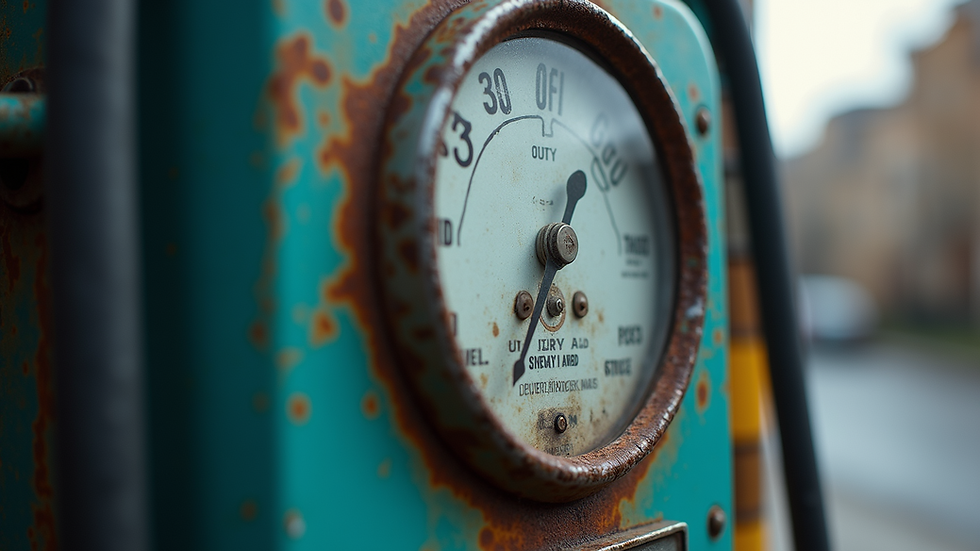Maximize Heating Efficiency This Winter
- lndgph
- Sep 19
- 4 min read
As winter approaches, the chill in the air becomes more pronounced. Many of us will soon rely heavily on our heating systems to keep our homes warm and cozy. However, heating your home can be costly, and inefficient systems can lead to higher energy bills. Fortunately, there are several ways to maximize heating efficiency this winter. In this post, we will explore practical tips and strategies to help you stay warm without breaking the bank.
Understand Your Heating System
Before making any changes, it is essential to understand how your heating system works. Whether you have a furnace, boiler, or heat pump, knowing the basics can help you operate it more efficiently.
Furnaces: These systems heat air and distribute it through ducts. Regular maintenance, such as changing filters, can improve efficiency.
Boilers: These systems heat water and distribute it through radiators or underfloor heating. Flushing the system can remove sludge and improve performance.
Heat Pumps: These systems transfer heat from outside to inside. They are generally more efficient than traditional heating systems, but they require proper maintenance to function well.
Schedule Regular Maintenance
One of the best ways to ensure your heating system runs efficiently is to schedule regular maintenance. A professional technician can inspect your system, clean components, and make necessary repairs.
Change Filters: Dirty filters can restrict airflow, making your system work harder. Change filters every one to three months, depending on usage.
Inspect Ducts: Leaky ducts can waste a significant amount of heat. Have your ducts inspected and sealed if necessary.
Check Thermostat Settings: Ensure your thermostat is functioning correctly. Consider upgrading to a programmable thermostat for better control over your heating schedule.
Insulate Your Home
Proper insulation is crucial for maintaining a comfortable temperature in your home. Insulation helps keep the heat in and the cold out.
Attic Insulation: Heat rises, so ensuring your attic is well-insulated can prevent heat loss.
Wall Insulation: If your walls are not insulated, consider adding insulation to improve efficiency.
Windows and Doors: Check for drafts around windows and doors. Use weatherstripping or caulk to seal any gaps.
Use Space Heaters Wisely
Space heaters can be a great way to heat specific areas of your home without using your entire heating system. However, they should be used wisely to maximize efficiency.
Targeted Heating: Use space heaters in rooms you use most often, such as the living room or bedroom.
Safety First: Always follow safety guidelines when using space heaters. Keep them away from flammable materials and never leave them unattended.
Supplement, Don’t Replace: Space heaters should not replace your main heating system but can supplement it for added comfort.
Optimize Your Thermostat Settings
Your thermostat plays a crucial role in your heating efficiency. Adjusting the settings can lead to significant savings.
Lower the Temperature: Consider lowering your thermostat by a few degrees. Each degree can save you money on your heating bill.
Use a Programmable Thermostat: Set your thermostat to lower the temperature when you are not home or while you sleep. This can lead to substantial savings over time.
Consider Zoning: If your home has multiple levels, consider zoning your heating system. This allows you to heat only the areas you are using.
Embrace Natural Heat Sources
Take advantage of natural heat sources to help warm your home.
Sunlight: Open curtains and blinds during the day to let sunlight in. This can naturally warm your home.
Close at Night: Close curtains at night to keep the warmth in and the cold out.
Use Rugs: Area rugs can help insulate floors and keep your home warmer.
Monitor Your Energy Usage
Keeping an eye on your energy usage can help you identify areas for improvement.
Energy Audits: Consider having a professional energy audit done. This can help you find inefficiencies in your home.
Track Your Bills: Monitor your heating bills each month. If you notice a significant increase, it may be time to investigate further.
Use Energy-Efficient Appliances: If you need to replace your heating system, consider energy-efficient models. They may have a higher upfront cost but can save you money in the long run.
Consider Alternative Heating Options
If you are looking for ways to improve heating efficiency, consider alternative heating options.
Wood or Pellet Stoves: These can be a cost-effective way to heat your home, especially if you have access to affordable fuel.
Solar Heating: If you are interested in renewable energy, consider solar heating options. While the initial investment can be high, the long-term savings can be significant.
Geothermal Heating: This is another renewable option that can provide efficient heating. It uses the earth's natural heat to warm your home.
Stay Informed About Energy Assistance Programs
Many communities offer energy assistance programs to help residents with heating costs.
Local Programs: Check with your local government or community organizations for available programs.
Federal Assistance: The Low-Income Home Energy Assistance Program (LIHEAP) can help eligible households pay for heating costs.
Weatherization Assistance: Some programs offer weatherization assistance to help improve your home’s energy efficiency.
Create a Heating Plan
Having a plan can help you stay organized and ensure you are maximizing your heating efficiency.
Set Goals: Determine what you want to achieve this winter. Whether it is reducing your heating bill or improving comfort, set specific goals.
Make a Checklist: Create a checklist of tasks to complete, such as scheduling maintenance or sealing drafts.
Review Regularly: Check in on your progress throughout the winter. Adjust your plan as needed to stay on track.
Conclusion: Embrace a Cozy and Efficient Winter
By implementing these strategies, you can maximize heating efficiency this winter. Not only will you stay warm and comfortable, but you will also save money on your energy bills. Remember, small changes can lead to significant savings. Embrace the winter season with confidence, knowing you are doing your part to create a cozy and efficient home.



Comments